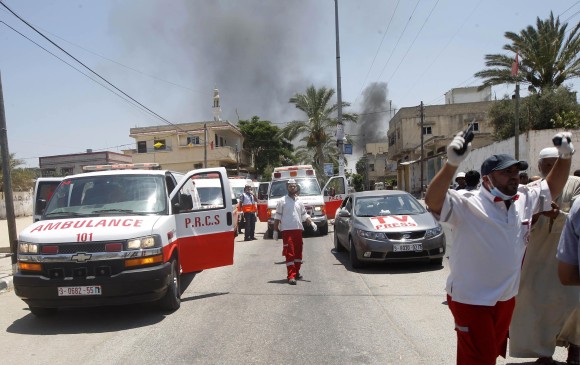Tag: Khuza’a
-
An eyewitness to genocide: a night in Khuza’a
31st July 2014 | Sarah Algherbawi | Gaza, Occupied Palestine Khuza’a is a 4000 acres town that lies east of Khan Younis city in the southern area of Gaza, with a population of almost 11,000 people. On Monday night, July the 21st, Israeli forces started to bomb Khuza’a heavily, with the aim of destroying it. Before…
-
Photos and video: Israeli forces’ gunfire blocks Palestinian farmland in Gaza
22nd January 2014 | Resistenza Quotidiana, Sil | Gaza, Occupied Palestine Since the Zionist occupation forces’ bulldozers had destroyed part of Khaled Qudaih’s field in Khuza’a, east of Khan Younis, he and his family went out to sow it again. The military responded with about half an hour of gunfire, threatening to strike Qudaih directly if he had not…
-
Why does Israel treat Gaza farmers sowing wheat by hand as military targets?
28th December 2013 | International Solidarity Movement, Charlie Andreasson | Gaza, Occupied Palestine December is the time for farmers in the Gaza Strip to sow. But for those with fields near the Israeli separation barrier, it is highly dangerous. Sure enough, we were met by news that an 18-year-old was shot an hour earlier when…



